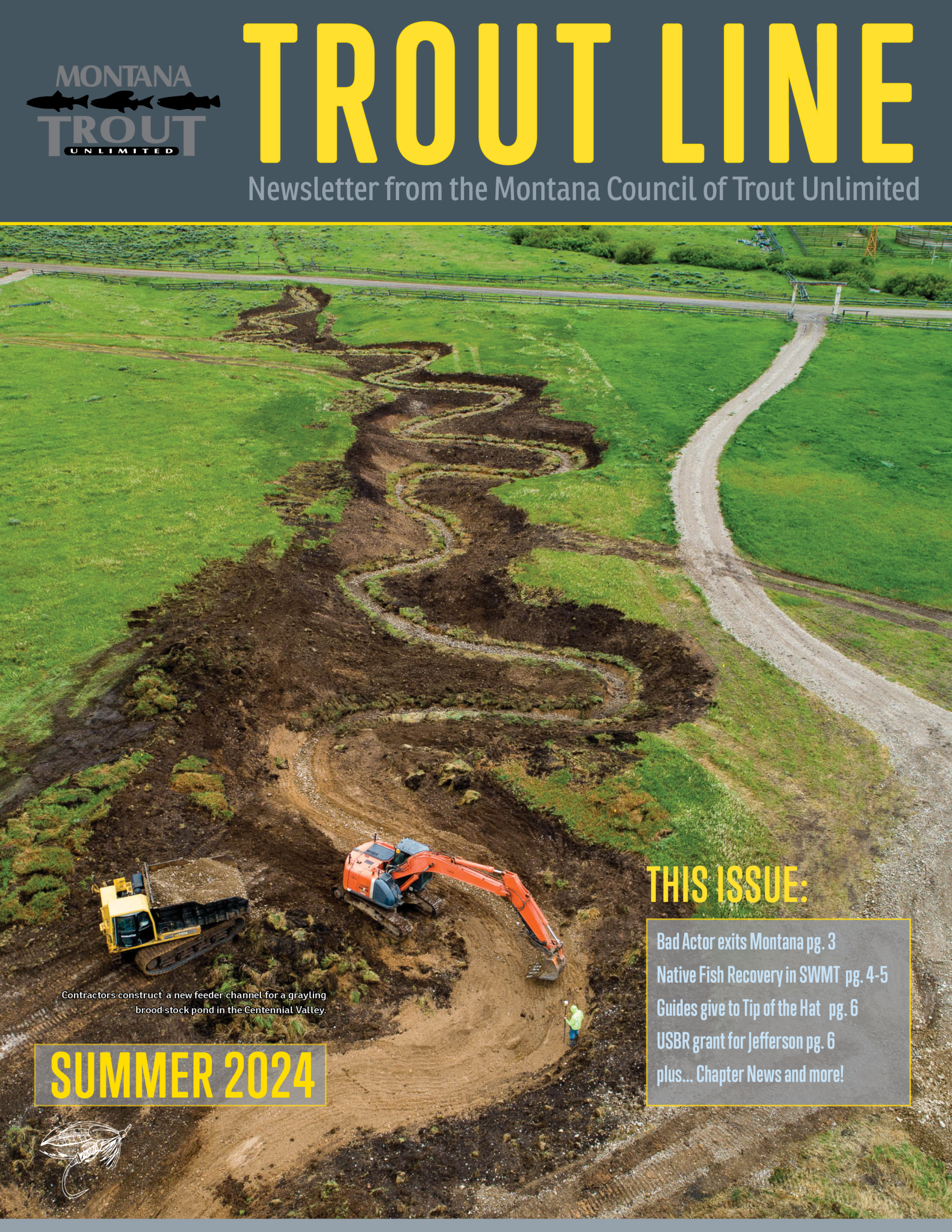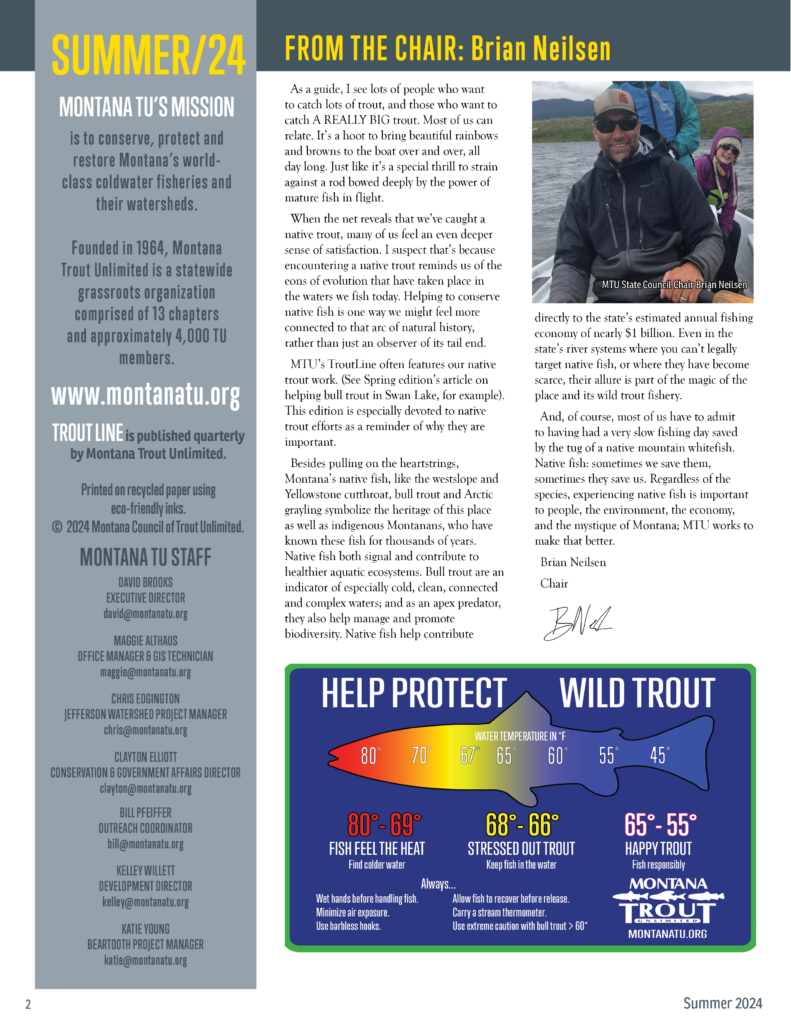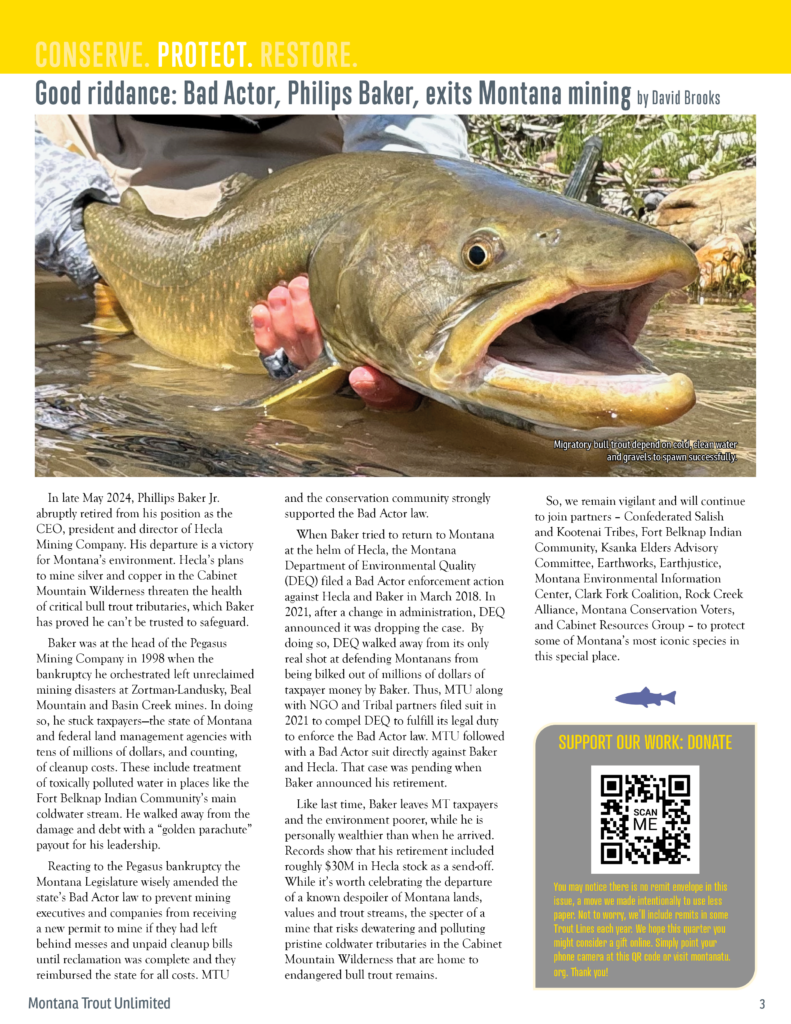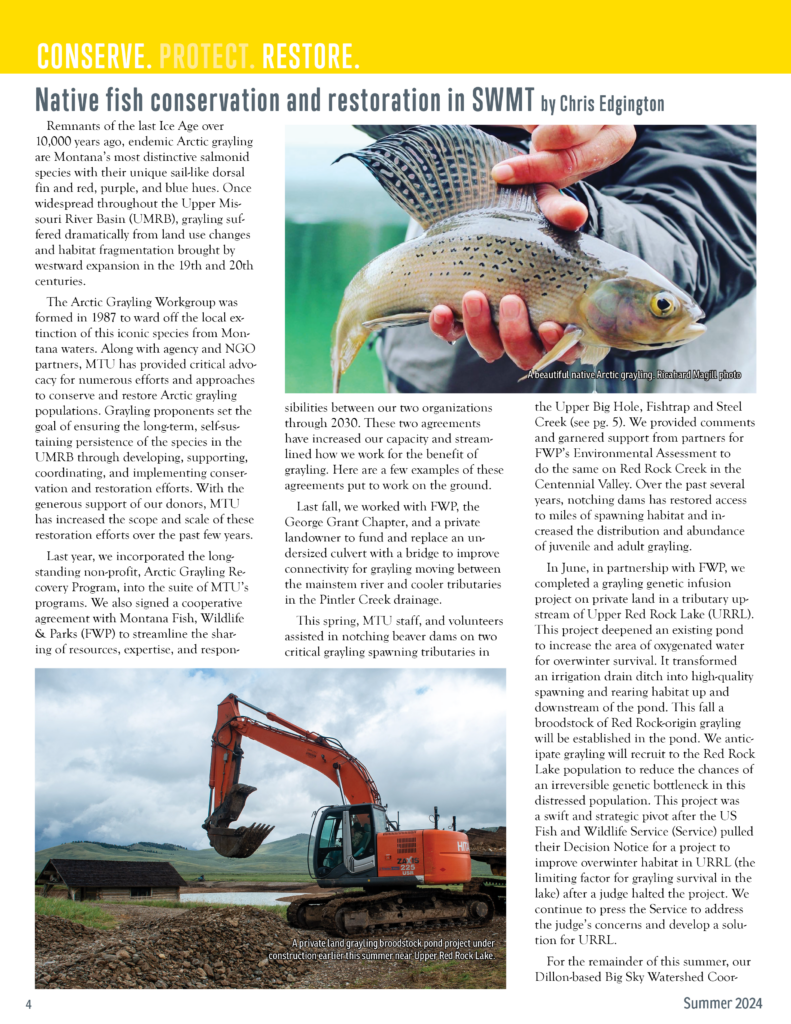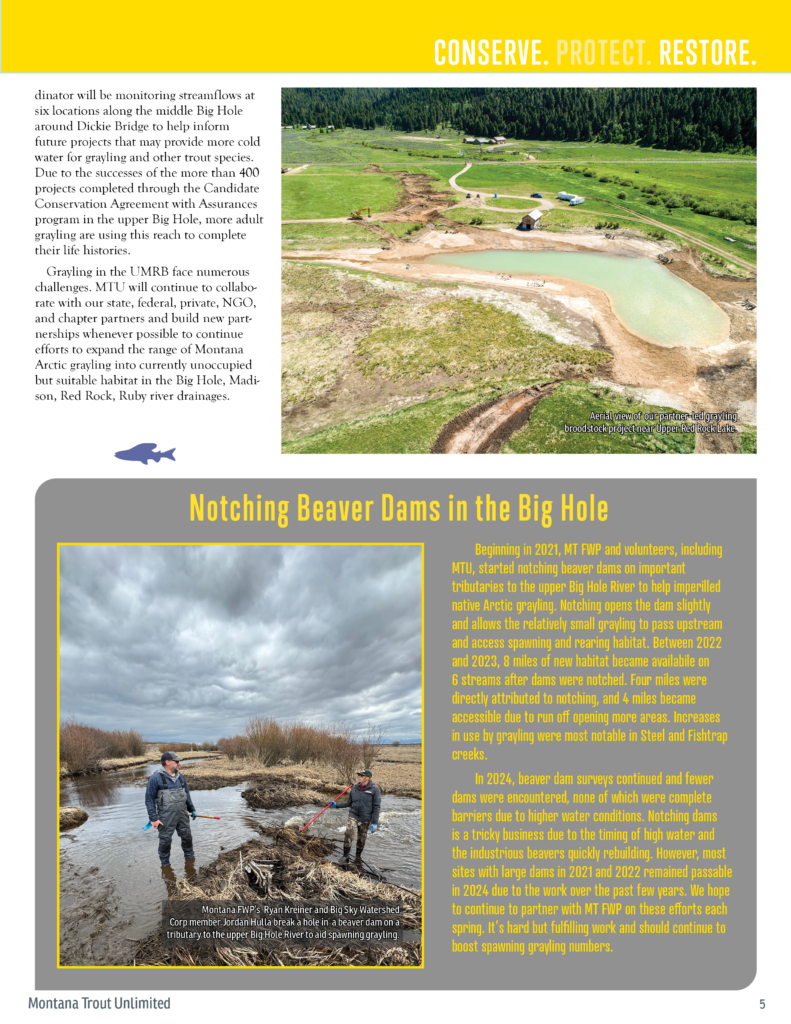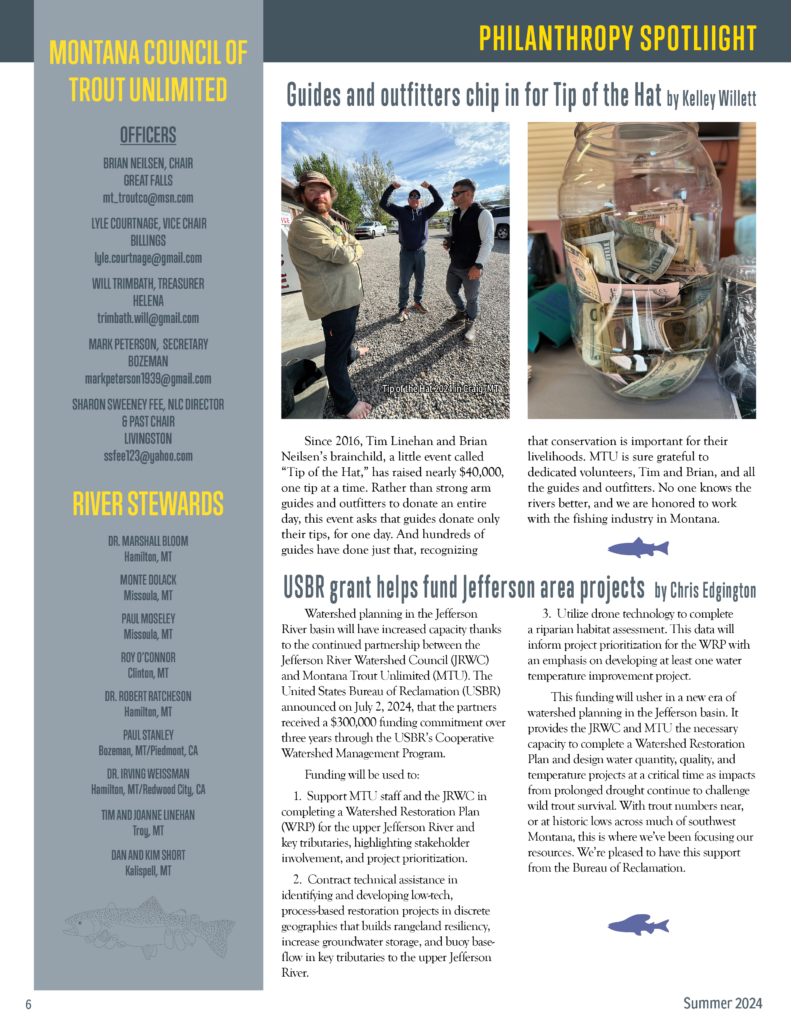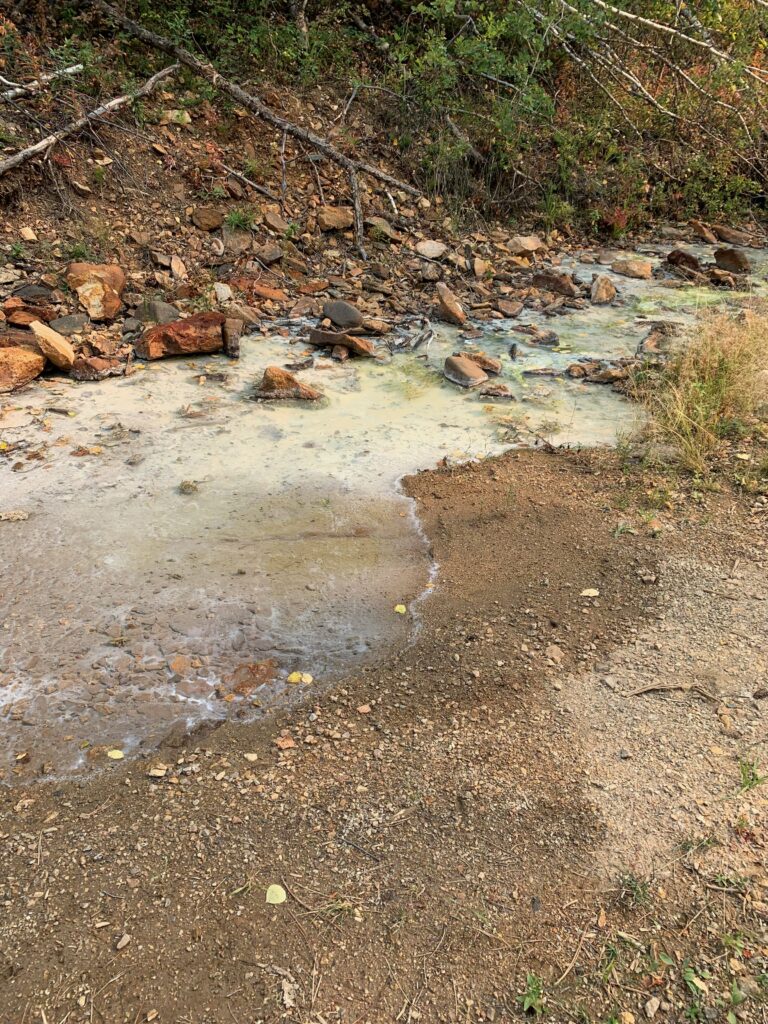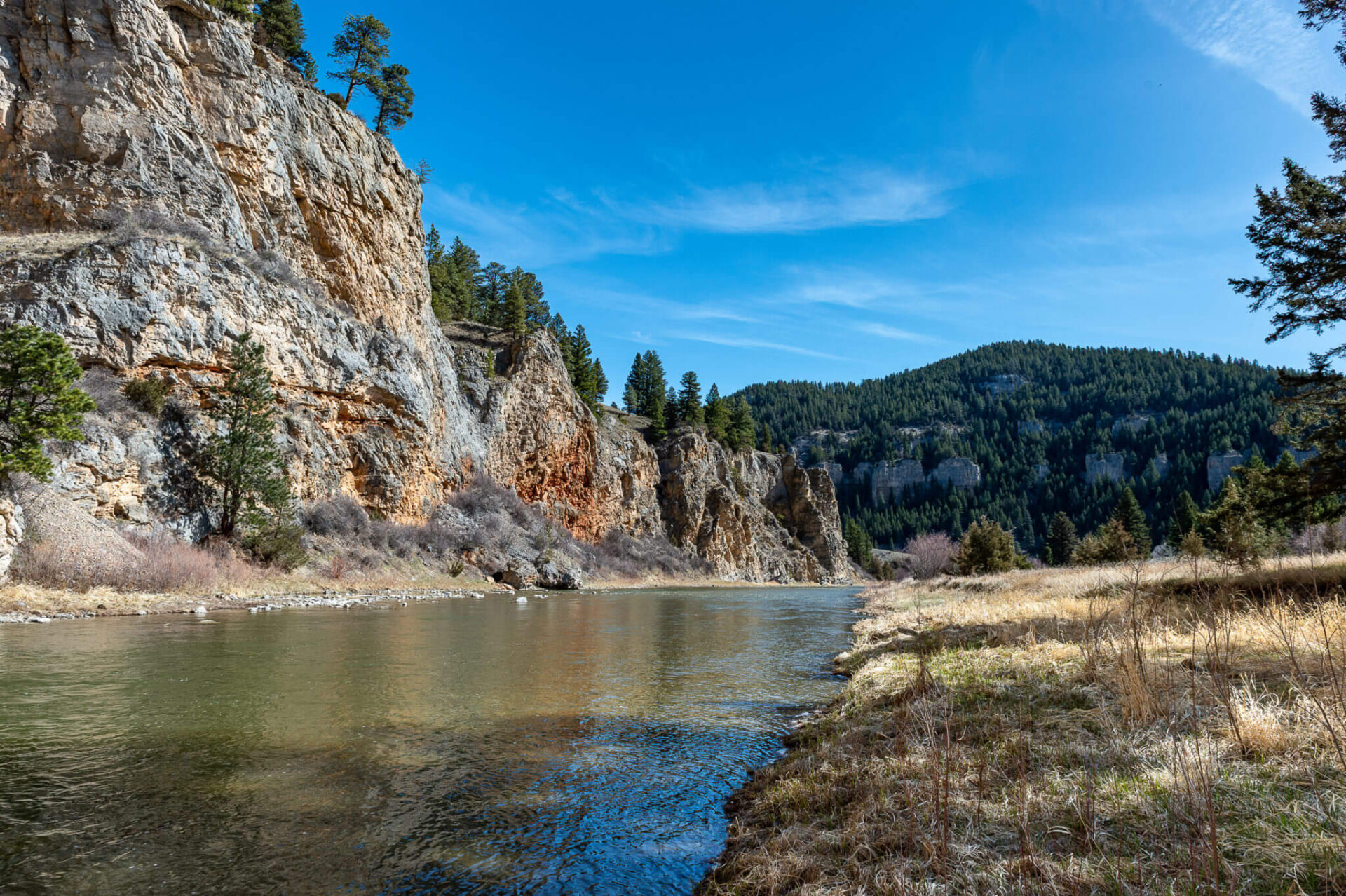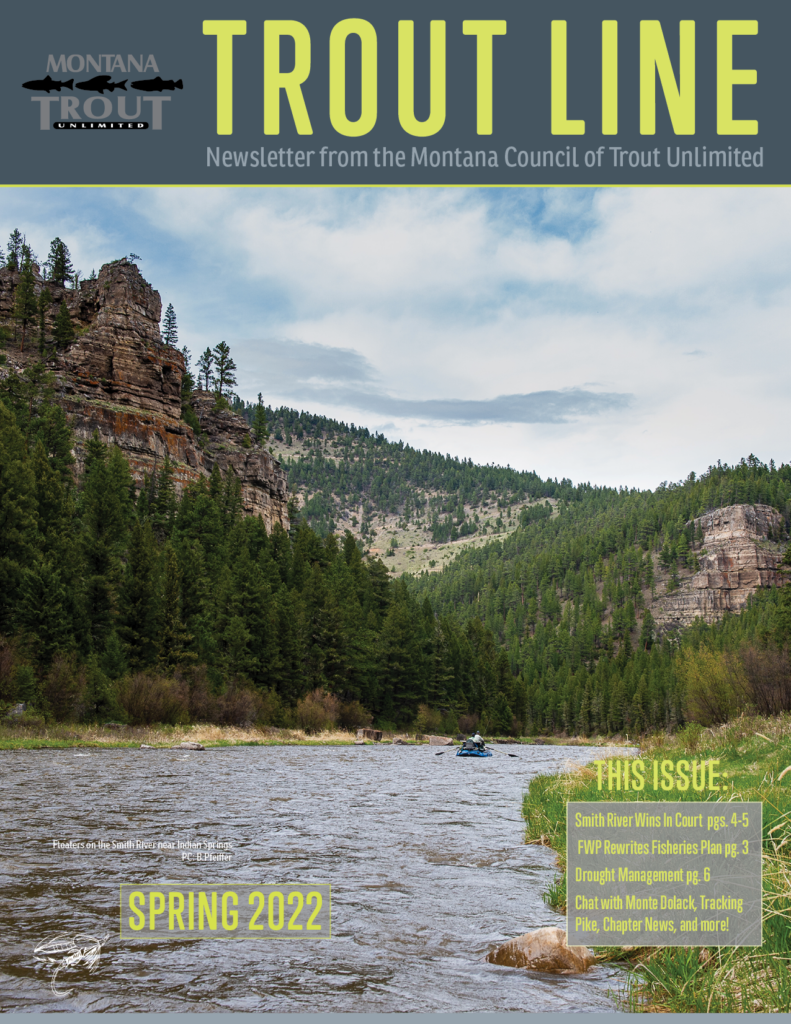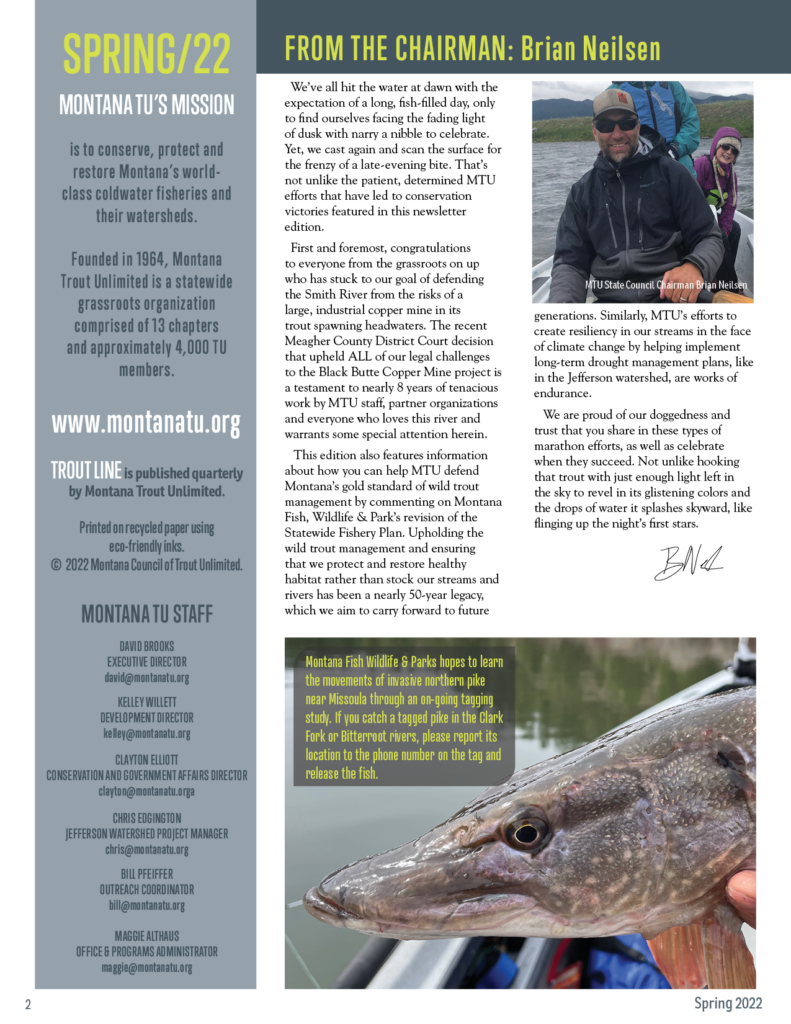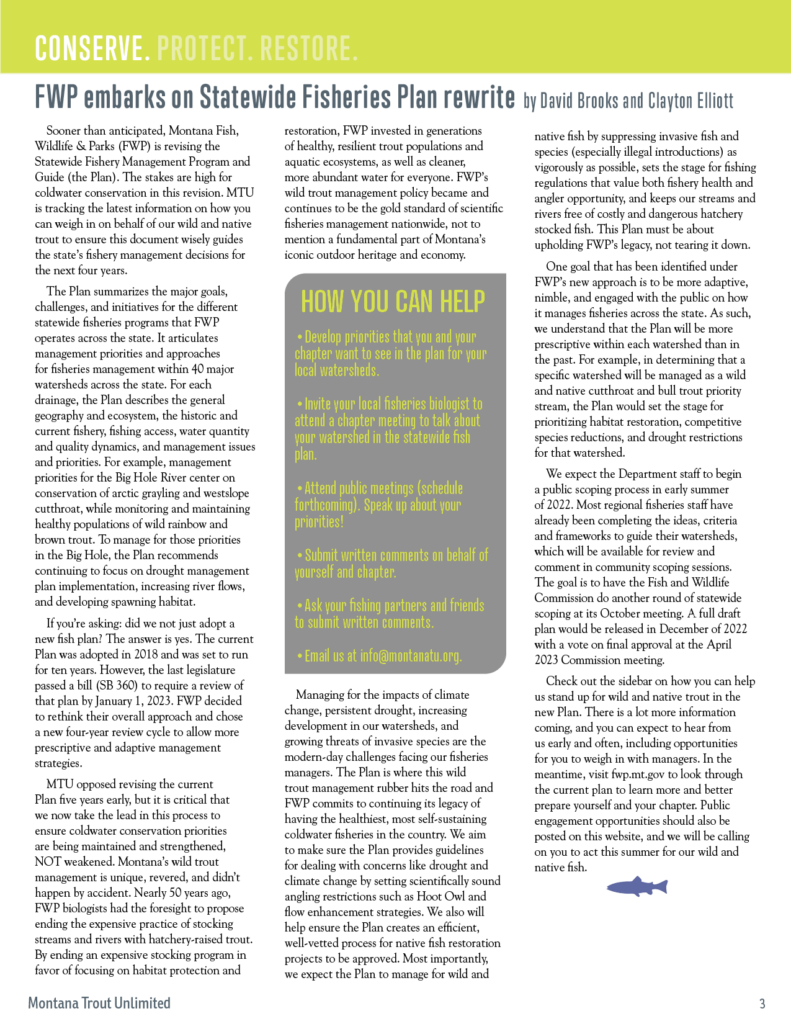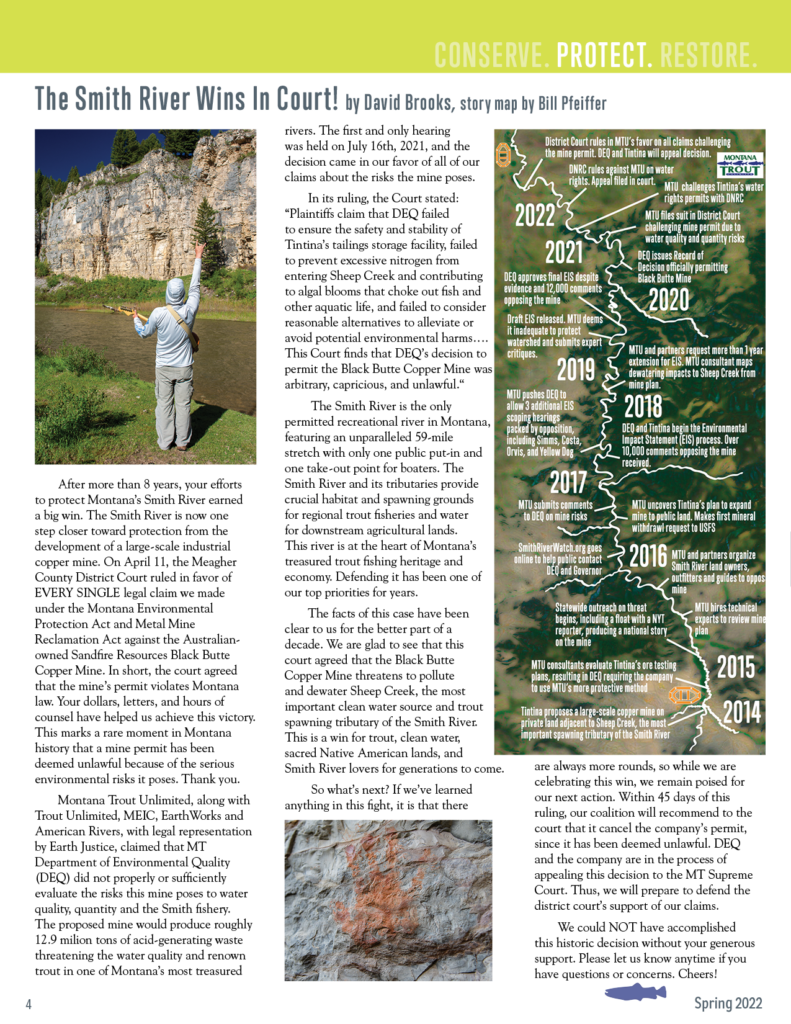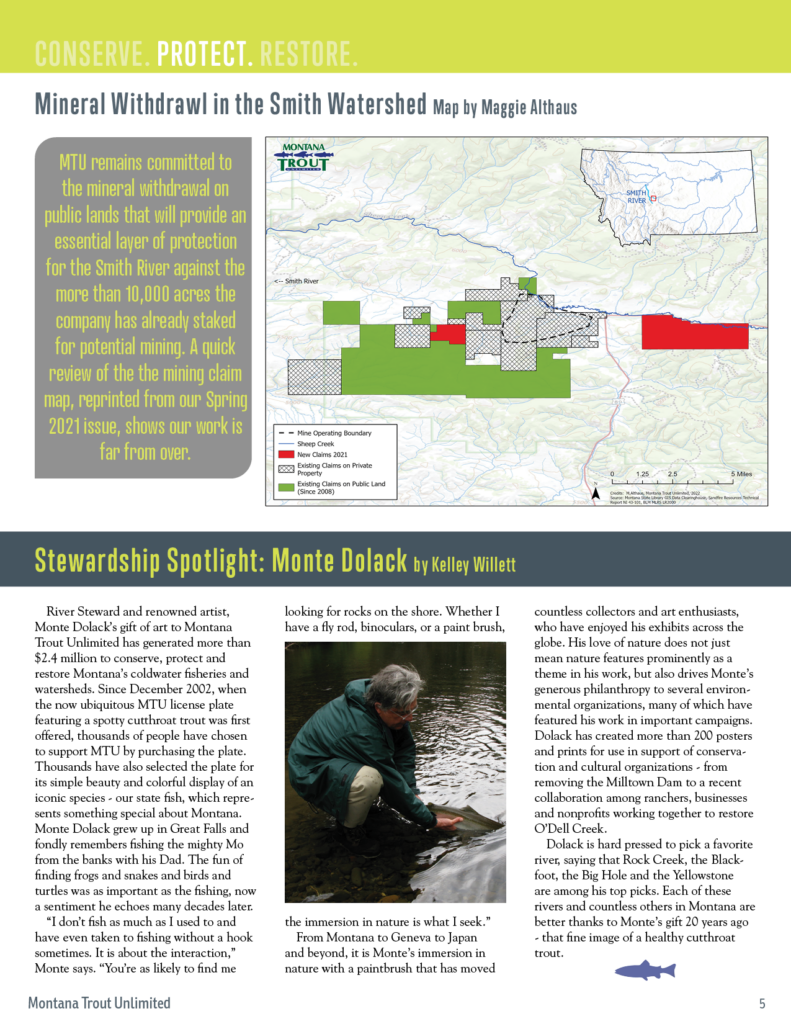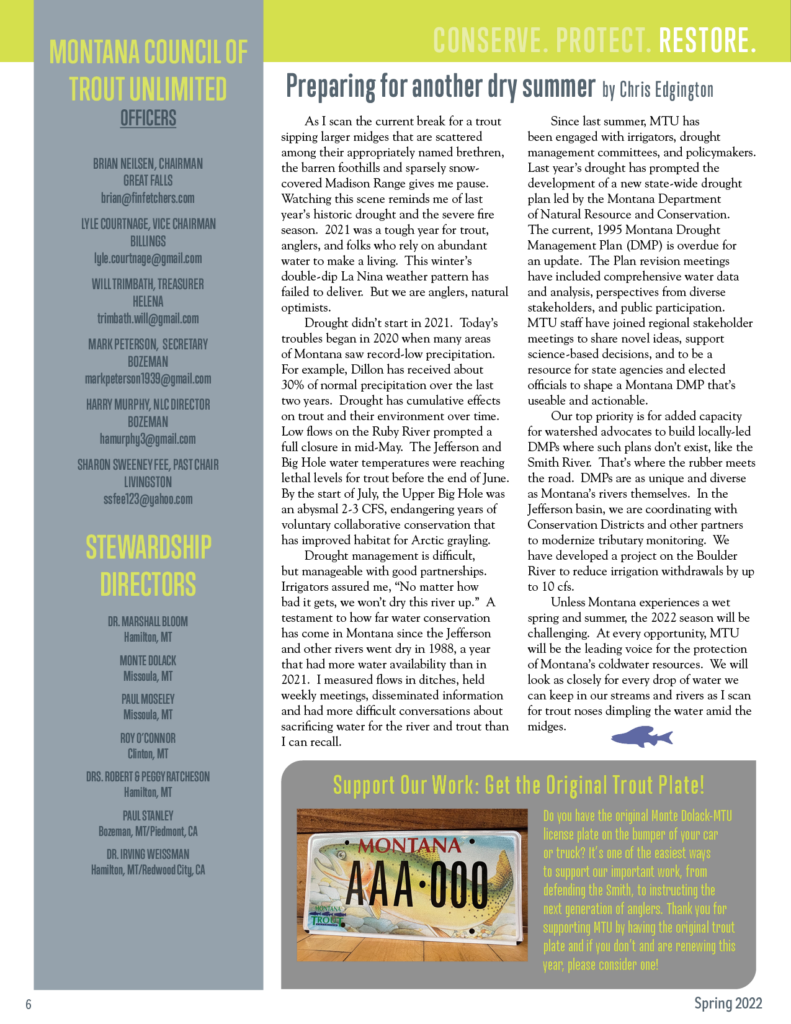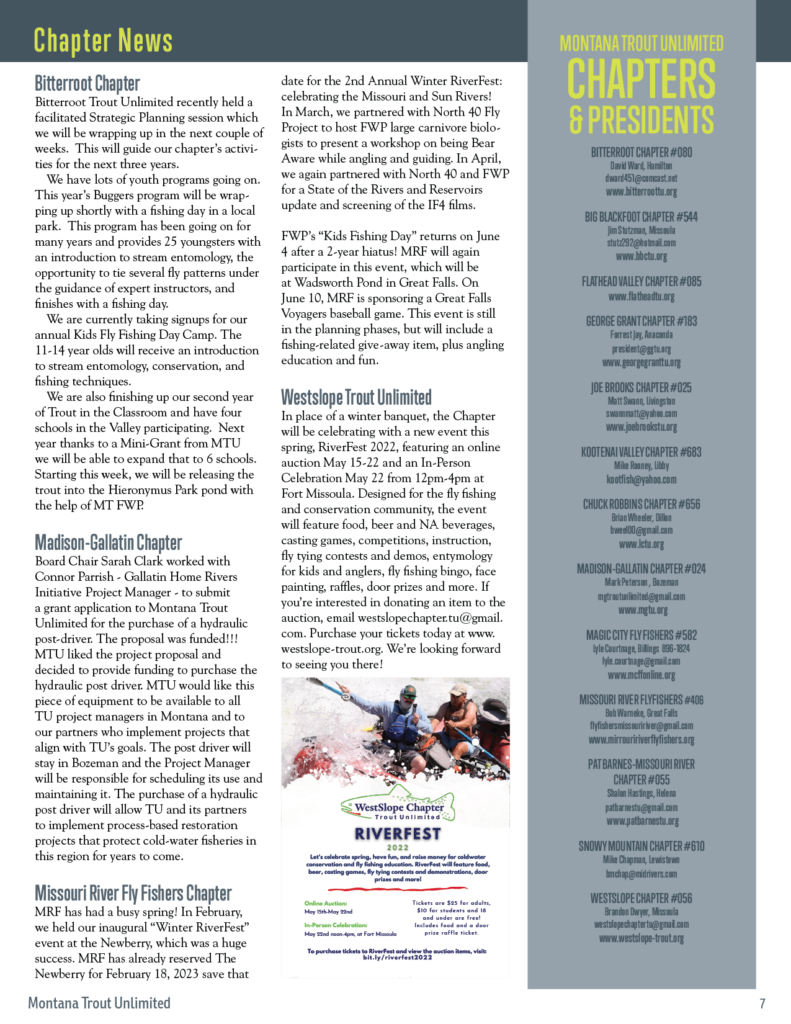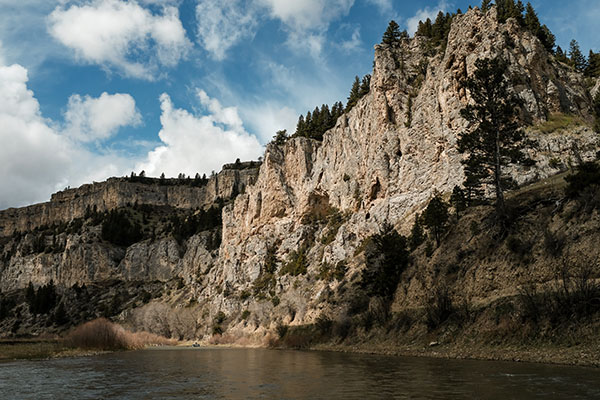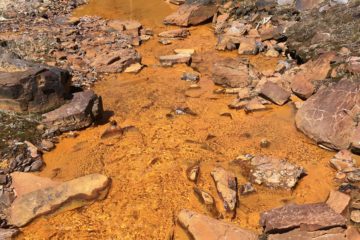Today, the Confederated Salish and Kootenai Tribes, Fort Belknap Indian Community, Ksanka Elders Advisory Committee, and several conservation organizations took legal action in State District Court to compel the Montana Department of Environmental Quality (DEQ) to fulfill its legal duty to enforce the “Bad Actor” law against Hecla Mining Co. and Hecla CEO Phillips S. Baker, Jr. Tribal leaders and conservationists are concerned about the devastation to the land and water from Baker’s former mining operations (the Zortman Landusky and Beal Mountain Mines) and the threat of proposed new mines.
“Good governance requires that laws be enforced, especially those that are designed to protect the public,” said Andrew Werk, Jr., President of the Fort Belknap Indian Community. “Our community members know all too well about the lasting legacy of mining pollution. This law is about protecting communities and ensuring that mining companies take responsibility for their actions, and we cannot emphasize strongly enough the importance of enforcing it.”
“The Cabinet Mountains hold an important position in the relationship between the Ksanka people and all of creation,” said Vernon Finley of the Ksanka Elders Advisory Committee and member of the Confederated Salish and Kootenai Tribes. “The “Bad Actor” law is the best way to hold people responsible for attempting to heal the wounds inflicted on nature. To simply free someone from their responsibility is to allow them to do it again and is unforgivable.”
The Bad Actor law was enacted in 2001 to prevent senior mining executives and companies from receiving a new permit to mine in Montana if they’ve failed to clean up past operations unless they reimburse the state for those cleanup costs.
DEQ filed a Bad Actor enforcement action against Hecla and Baker in March 2018. After the State District Court ruled that DEQ did indeed have jurisdiction over the Idaho-based company and Baker, DEQ announced it was dropping the case, citing the election of a new governor, among other reasons.
The tribes and conservation groups gave DEQ advance notice, and an opportunity to reinitiate enforcement before initiating today’s legal action.
Today’s complaint asserts that the DEQ’s refusal to enforce the Bad Actor law violates its clear legal duties under the Montana Metal Mine Reclamation Act and Montana’s Constitution. The group also delivered a petition with more than 3,000 names to Gov. Greg Gianforte’s office, calling on the governor to protect Montana by directing DEQ to enforce the state law to prevent a wealthy Idaho-based mining executive from getting off “scot-free.” The lawsuit is filed on behalf of the tribes, as well as conservation organizations represented by Earthjustice (Earthworks, Montana Environmental Information Center, Clark Fork Coalition, Rock Creek Alliance, Montana Conservation Voters, Montana Trout Unlimited, and Cabinet Resources Group).
“It’s DEQ’s job to enforce the law and prevent corporate polluters from getting off ‘scot-free’ from their cleanup responsibilities,” said Bonnie Gestring, Northwest Program Director for Earthworks. “DEQ’s decision to drop this case leaves us no other option than to compel enforcement of our reclamation laws through the courts.”
“The Bad Actor law was passed by a republican legislature and signed by former Governor Judy Martz in order to assure and require that mining projects are properly reclaimed,” stated Derf Johnson, Clean Water Program Director with the Montana Environmental Information Center. “Governor Greg Gianforte cannot simply choose to ignore the law for political expediency, and that’s why we’re taking the DEQ to court.”
“Governor Gianforte needs to do his job and protect Montana from rich out-of-state executives who have a history of sticking us with the bill to clean up their messes,” said Whitney Tawney, Executive Director of the Montana Conservation Voters Education Fund. “The law is clear: anyone who is responsible for poisoning Montana’s land and water must clean up their mess before receiving the right to mine in our state again.”
“The purpose of the Bad Actor law is to promote responsible mining, to protect Montana’s clean water, air and environment, as well as taxpayers from unscrupulous mining executives,” said David Brooks, Executive Director of Montana Trout Unlimited. “DEQ’s failure to enforce this law is such a clear-cut case it leaves us no choice but to take this action on behalf of Montanans and our state’s environmental health.”
“DEQ’s refusal to enforce the ‘bad actor’ law against Hecla and CEO Baker is indefensible,” said Earthjustice attorney Amanda Galvan, who is representing the groups. “This abdication of responsibility is not only illegal under Montana law, but also recklessly jeopardizes every Montanan’s constitutional right to a clean and healthful environment.”
“It’s hard to imagine how DEQ’s about-face on ‘bad actor’ enforcement serves Montanans or fits in with the decades-long work to clean up and restore mining-damaged waterways and landscapes,” said Karen Knudsen, Executive Director of the Clark Fork Coalition. “By backing away, DEQ is inviting mining history to repeat itself – and communities, taxpayers, and clean water will be the ones paying the price.”
“The Gianforte Administration is refusing to enforce the bad actor law, which will give mining companies and their executives a free pass to repeat irresponsible behavior,” said Mary Costello, Executive Director of Rock Creek Alliance and Save Our Cabinets. “The bad actor law must be enforced to protect Montana’s most valuable asset, which is clean water, and to send a message that no one is above the law.”
“I find it unbelievable that the law is being ignored by DEQ and is opening the door to possible irreparable damage to the watershed of Rock Lake, one of the jewels of the Cabinets, as well as pollution from mine waste into Lake Pend Oreille, the second largest lake in the western United States,” said Jim Nash, President of Cabinet Resource Group.
Background
Phillips S. Baker served as the Vice President and Chief Financial Officer for Pegasus Gold, when it filed for bankruptcy in 1998, leaving the State of Montana with tens of millions of dollars in cleanup costs when the company abandoned its operations at the Zortman Landusky, Beal Mountain and Basin Creek gold mines. The state has spent more than $30 million at Zortman-Landusky alone, where acid mine drainage despoiled the land, water, and sacred sites of the Fort Belknap Tribes, whose reservation borders the mine site. Publicly funded water treatment costs continue at Zortman Landusky and Beal Mountain today and are likely to continue forever.
Hecla and its CEO, Baker, are currently proposing two massive new copper/silver mines (the Rock Creek and Montanore Mines) adjacent to and underneath the Cabinet Mountains Wilderness in northwestern Montana that have been the subject of two recent court decisions because the company’s mine plans failed to comply with the Endangered Species Act and Clean Water Act.
The Bad Actor law was enacted in 1989 and strengthened in 2001 in direct response to the Pegasus Gold bankruptcy. The legislation was carried by former Senate President Tom Beck (R-Deer Lodge), passed the senate with bi-partisan support (a 97-2 vote), and was signed into law by former Republican Governor Judy Martz.


